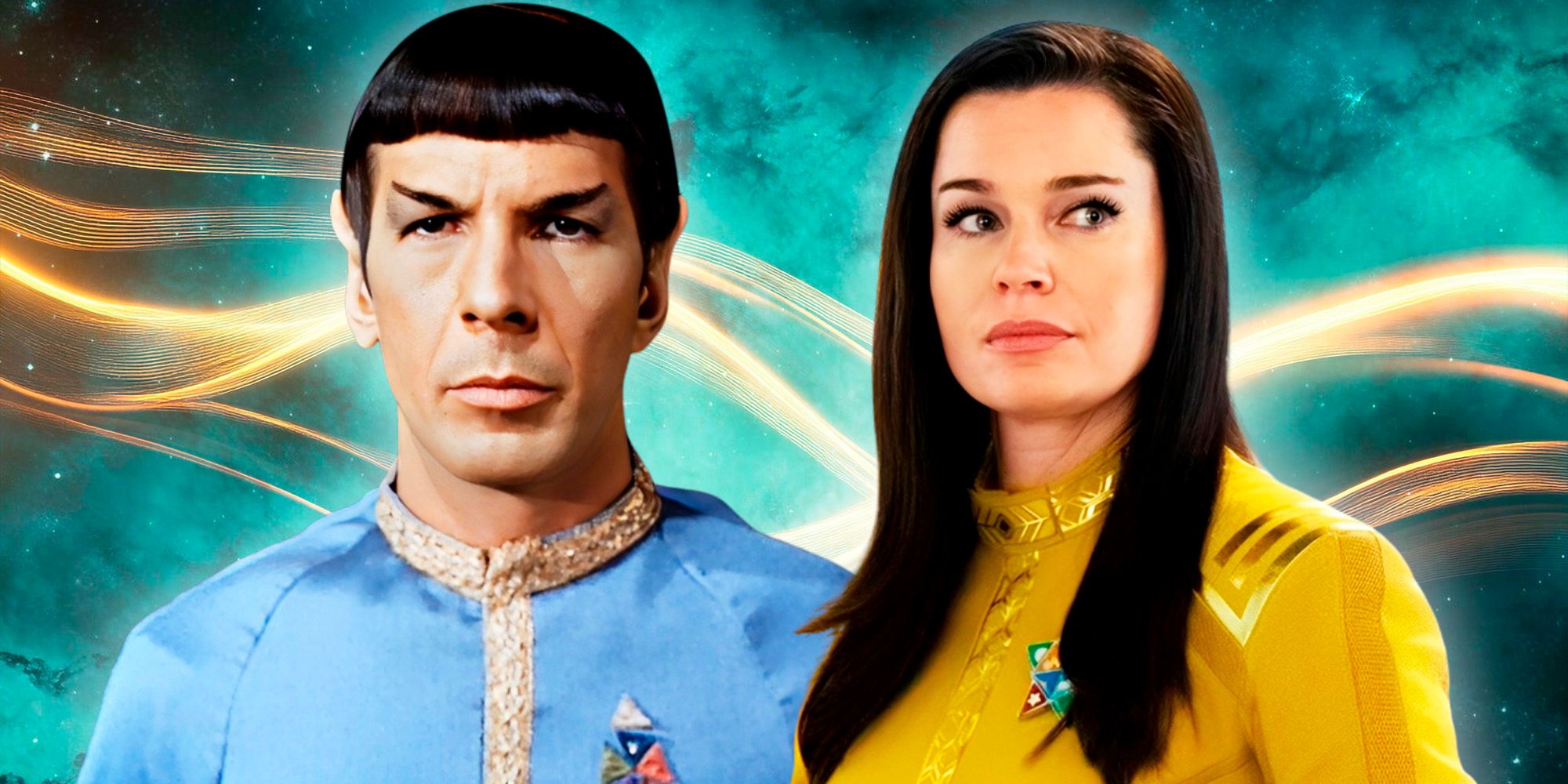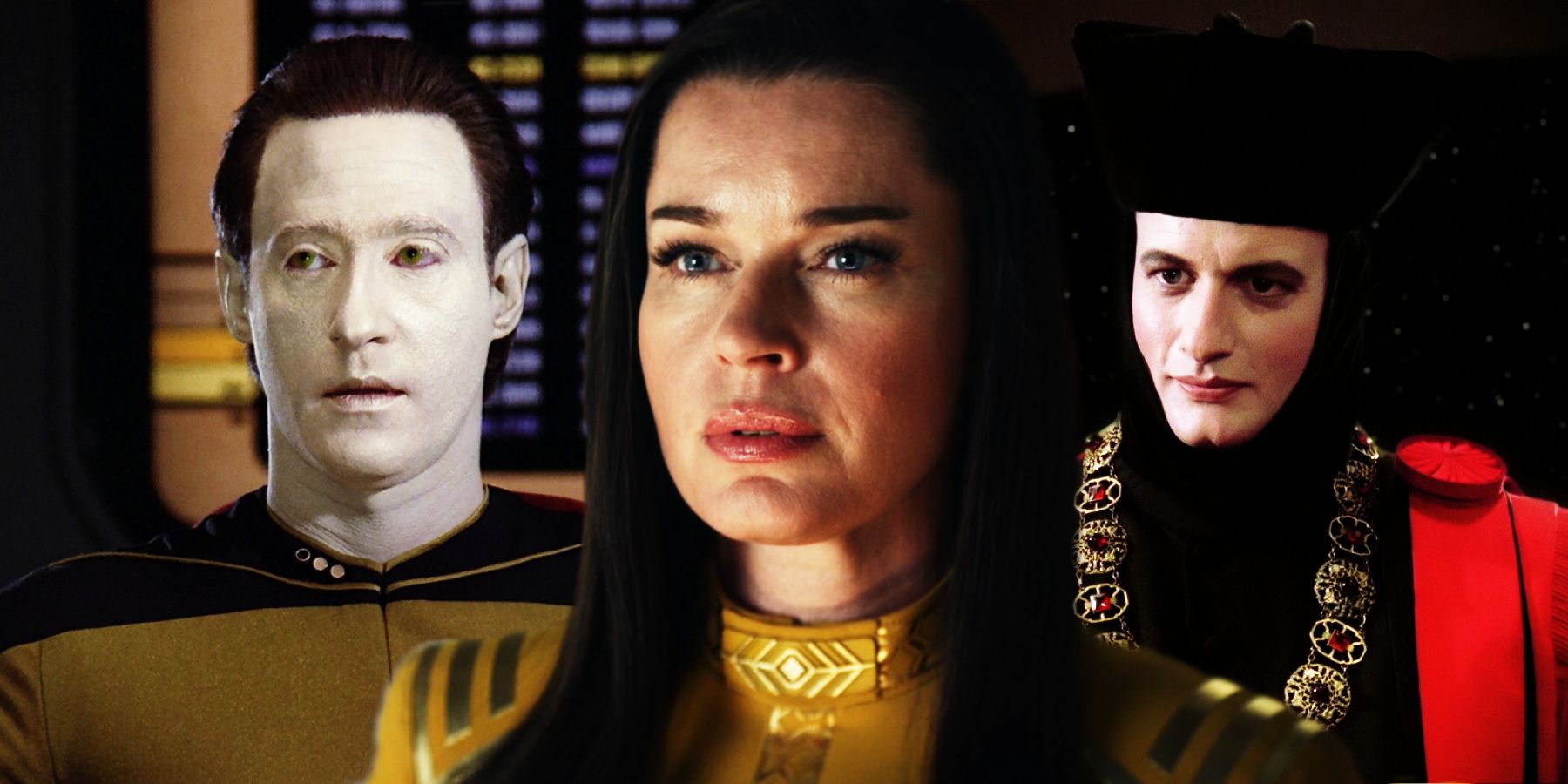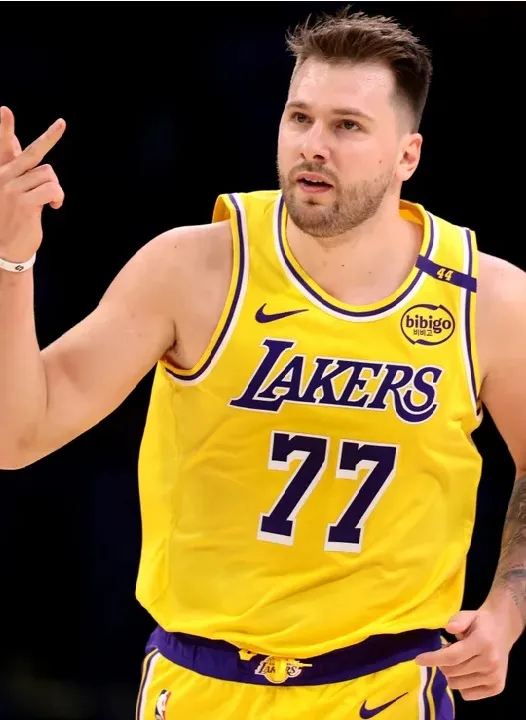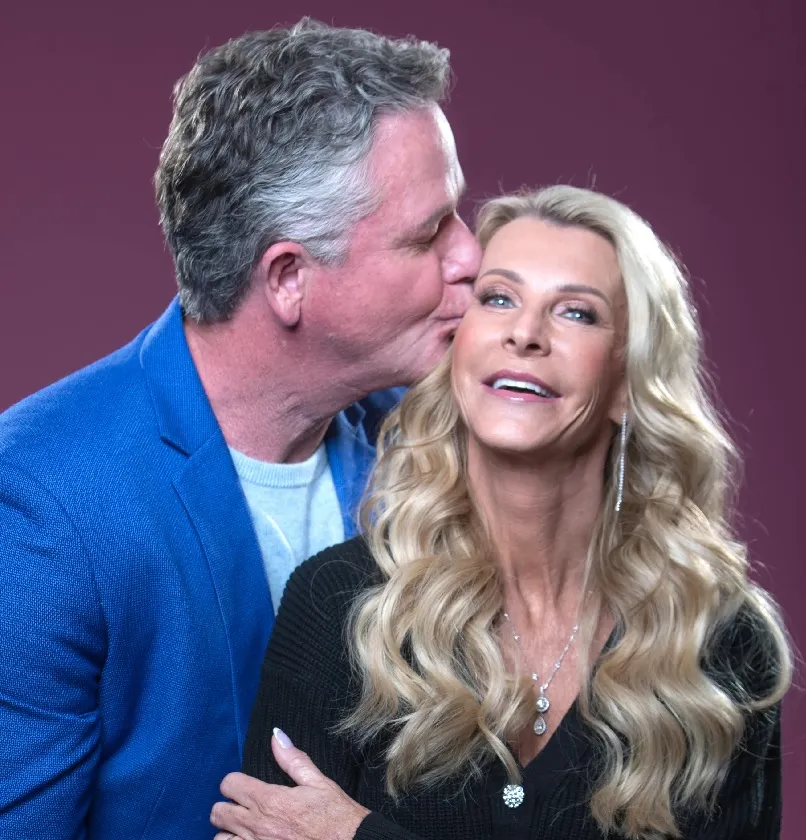Spock's subsequent court-martial used footage from the first Star Trek pilot, "The Cage," as evidence in the proceedings, because "The Menagerie" was written as a cost-saving measure for TOS. In-universe, the chopped-up version of "The Cage" serves to explain why Spock would risk his life for Captain Pike (Jeffrey Hunter). The trial and video are actually projected by the Talosian into Kirk's mind as a distraction, so Spock can get Pike to Talos IV. While Spock's trial isn't real, the format proved popular enough that later Star Trek shows would expand the courtroom drama genre.
"The Menagerie" Created Star Trek's Courtroom Drama Trope
The Trappings Of Starfleet Trials Are A Backdrop For Bigger Star Trek Stories
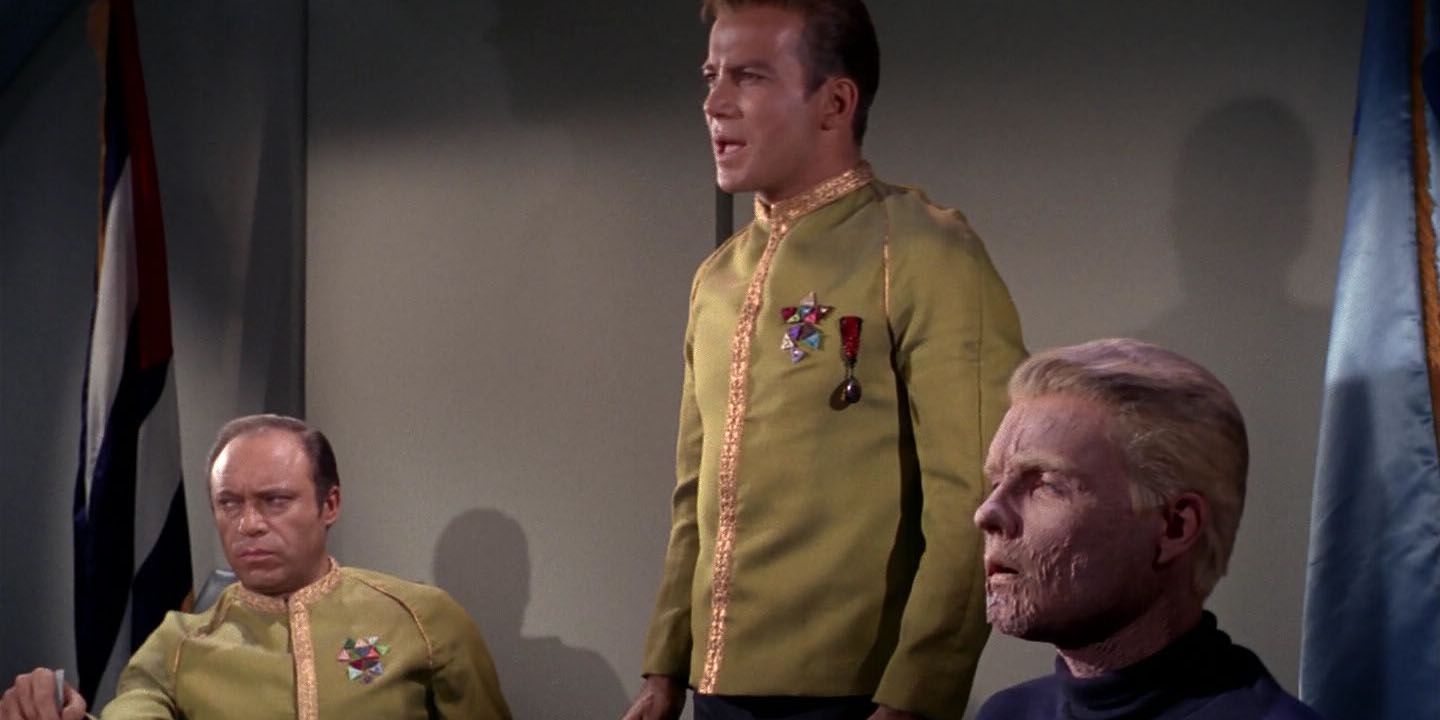
While The Original Series' "The Menagerie" created the franchise's courtroom drama, Star Trek's return to the courtroom in TOS season 1, episode 20, "Court Martial," established the trappings of a proper Starfleet hearing, when Kirk becomes the first Starfleet captain to face a court-martial. Starfleet Command's panel of judges, Starfleet dress uniforms, and the lighted device that witnesses swear upon in a secular future, have all become staples of Star Trek's courtroom episodes. Even the prosecutor being well-known to the defendant comes from TOS, with Kirk's old friend Areel Shaw (Joan Marshall) competently arguing against Kirk's defense.
All the physical elements of a 23rd-century Starfleet courtroom came back in Star Trek: Strange New Worlds season 2, episode 2, "Ad Astra Per Aspera," now updated with modern production standards. Star Trek: The Next Generation established equivalent 24th-century proceedings in season 2, episode 9, "The Measure of A Man." But predicting new technology and proving humanity has advanced beyond conflict of interest are only small parts of Star Trek legal dramas. Like in the relevant TOS episodes, Star Trek effectively uses the courtroom as a backdrop to explore the morals and motives of characters.
Star Trek Courtroom Dramas Are Consistently Great
Star Trek's Courtroom Episodes Reveal The Franchise's Moral Code
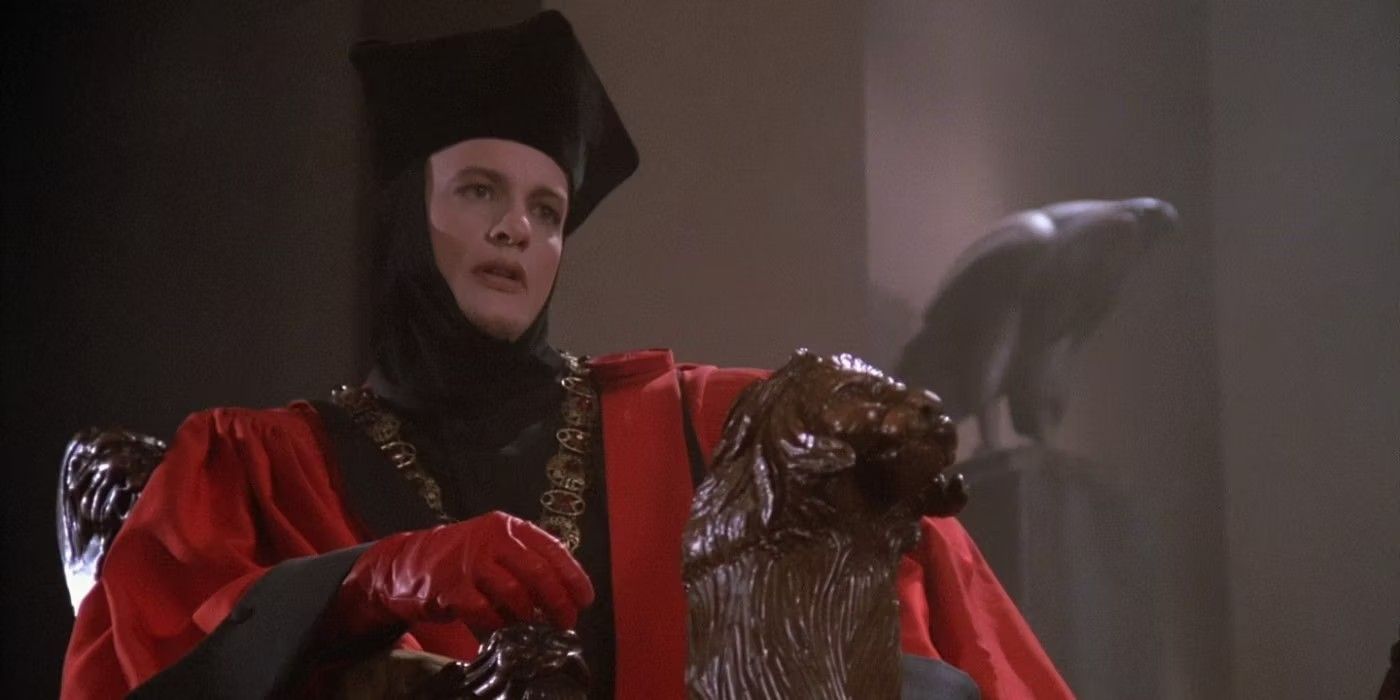
|
Notable Star Trek Courtroom Episodes |
IMDB Rating |
|
|---|---|---|
|
"The Menagerie" |
Star Trek: The Original Series season 1, episodes 15 & 16 |
8.2 / 8.1 |
|
"Court Martial" |
Star Trek: The Original Series season 1, episode 20 |
7.4 |
|
"Encounter At Farpoint" |
Star Trek: The Next Generation season 1, episode 1 |
6.9 |
|
"The Measure of A Man" |
Star Trek: The Next Generation season 2, episode 9 |
9.1 |
|
"The Drumhead" |
Star Trek: The Next Generation season 4, episode 21 |
8.4 |
|
"The First Duty" |
Star Trek: The Next Generation season 5, episode 19 |
7.8 |
|
"Dax" |
Star Trek: Deep Space Nine season 1, episode 8 |
7.1 |
|
"Tribunal" |
Star Trek: Deep Space Nine season 2, episode 25 |
7.5 |
|
"Rules of Engagement" |
Star Trek: Deep Space Nine season 4, episode 19 |
7.3 |
|
"Death Wish" |
Star Trek: Voyager season 2, episode 18 |
8.3 |
|
"Author, Author" |
Star Trek: Voyager season 7, episode 19 |
7.9 |
|
"Judgment" |
Star Trek: Enterprise season 2, episode 19 |
7.6 |
|
"Veritas" |
Star Trek: Lower Decks season 1, episode 8 |
7.6 |
|
"Ad Astra Per Aspera" |
Star Trek: Strange New Worlds season 2, episode 2 |
8.5 |
Why Star Trek Is So Good At Courtroom Drama Episodes
Courtroom Dramas Explain Why Star Trek's Progressive Ideals Matter
Star Trek is so good at courtroom drama episodes because the concept naturally allows characters to argue in favor of the best parts of Gene Roddenberry's Star Trek vision, where everyone deserves truth, dignity, and respect. In TOS, "The Menagerie" proves Pike's dignity outweighs Spock's career, and "Court Martial" proves the value of human (and Vulcan) testimonies against the apparent infallibility of the USS Enterprise's computer. Later Star Trek courtroom episodes consistently prove that all people are worthy of respect and consideration, whether they're androids, holograms, human Augments, genetically enhanced Illyrians, or descended from former Federation enemies.
Courtroom episodes provide the perfect platform to let Star Trek do what it does best, using science fiction as social commentary. Star Trek: Deep Space Nine's Cardassian trials mimic real-world corruption by foregoing due process entirely and serving harsh punishments that exceed crimes. Even Federation law isn't exempt from bias; smart characters like Strange New Worlds' Neera Ketoul (Yetide Badaki) point out that something can be legal without being moral. Courtroom dramas are easily some of Star Trek's best episodes, and might never have happened if not for the need to reuse Star Trek: The Original Series' failed pilot.
